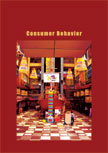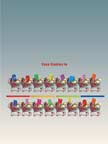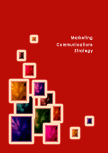Consumers Behavior
 |
Details
Chapter Code: CBC07
Textbook:
210 X 275 mm approx.
Short Case Studies
Detail Table of Contents
Workbook:
Pages : 304; Paperback;
210 X 275 mm approx
Pricing
Textbook Price: Rs. 750;
Workbook Price: Rs. 700;
Shipping & Handling Charges: Rs. 50 per book;
Books Available only in INDIA
Chapter Price : Rs. 100
To download this chapter in electronic format, click on the button below,
and select the chapter from the list of available chapters.
Buy Now
To order the entire book click on the button below, and select the book from
the list of available books:
Please allow 5 to 10 days for delivery of the
Book.
Consumer Behavior : Chapter 7
SUMMARY:
Attitudes have been understood as learned predispositions that project a positive or negative behavior consistently toward various objects of the world. The tangible and intangible objects, toward which one can form an attitude are called attitude objects. Attitudes influence the way we think and behave and are therefore important for the marketers who study them to understand how a consumer behaves. Attitudes have certain characteristics. |
|
Attitude models were developed by psychiatrists to understand the relationship between attitudes and human behavior.
These models help the marketer in understanding how attitudes influence a person's behavior as a consumer. These models are: Tri-component model, multi-attribute model, Theory of trying to consume, and Attitude toward the ad model. Attitudes are formed through classical conditioning, instrumental conditioning, and cognitive theory.
Attitudes are measured using the Semantic differential scale and Likert's scale to understand how the consumer might behave toward a particular product. While it is generally accepted that attitudes influence behavior, there are some theories that state that behavior precedes attitudes. Such theories are cognitive dissonance theory, self-perception theory, social judgment theory, and balance theory. Attitudes toward a product can be changed by highlighting new functions of the product, or by associating them with celebrities, by changing the beliefs a consumer has regarding the products, or by getting the consumer more involved in the product.



